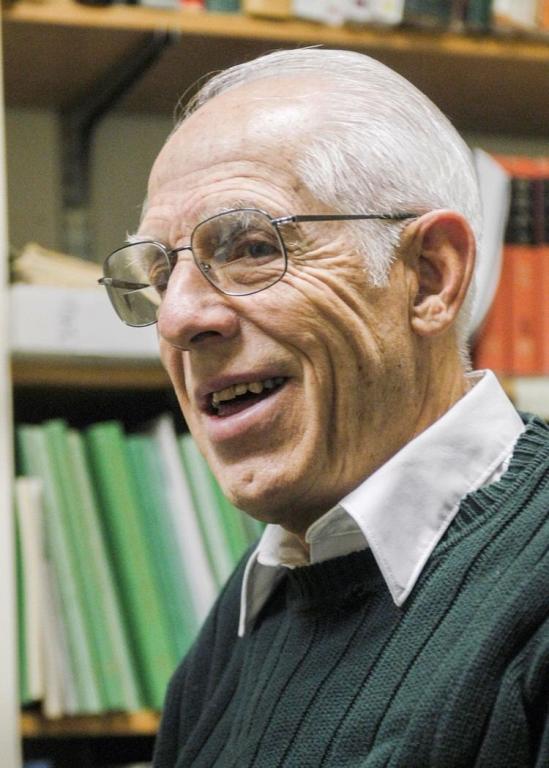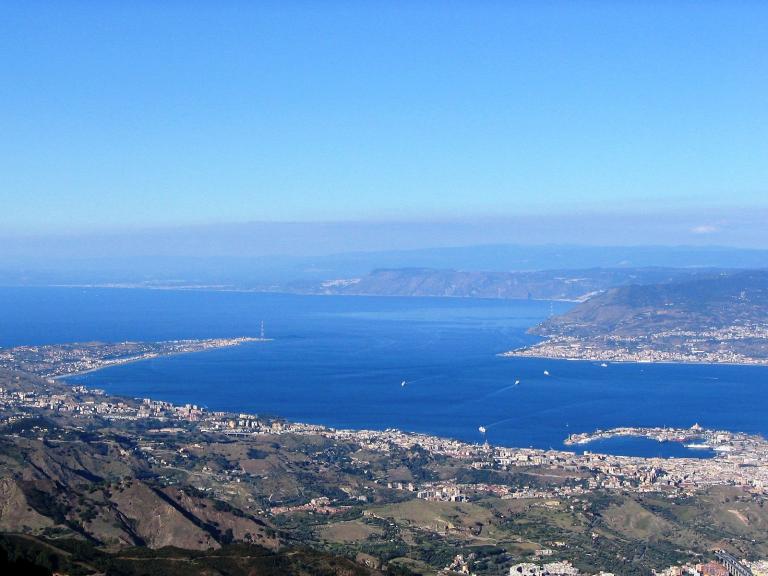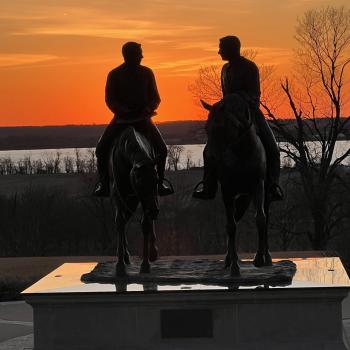
It appears that the Journal of Book of Mormon Studies, once one of the two flagship periodicals of the old Foundation for Ancient Research and Mormon Studies (FARMS) and of its successor, the Neal A. Maxwell Institute for Religious Scholarship, is going the way of all flesh:
The organizational changes at the Institute provide an opportune occasion to wind down production of its academic periodical, The Journal of Book of Mormon Studies.“The Journal was a vital home for nurturing Book of Mormon scholarship at a time when the field was small and other venues for a believer’s perspective were virtually nonexistent,” said Kim Matheson, the Institute’s Laura F. Willes research fellow.“Under Joseph M. Spencer, the journal continued to help mature Book of Mormon scholarship, but the field began to develop needs beyond what a journal could meet. Today, Book of Mormon studies requires open access venues that can reach new audiences. We need fresh forms of collaboration that nurture young scholars from many academic disciplines and backgrounds, both inside and outside the tradition. We hope to adapt to these urgent needs for the field even as we continue to champion traditional Book of Mormon publications in other, increasingly available peer-reviewed venues.”
For the complete article, see here. I’m deeply grateful for all of those — donors, authors, editors, and readers — who have made it possible for Interpreter: A Journal of Latter-day Saint Faith and Scholarship to thrive.

The Odyssey of Homer, translated into English prose by T. E. Shaw (London, Oxford, and New York: Oxford University Press, 1960). Incidentally, T. E. Shaw is also known as T. E. Lawrence, famously portrayed by Peter O’Toole in the great 1962 David Lean film, Lawrence of Arabia. I’m not sure that I’ve re-read the Odyssey since my days as an undergraduate, struggling with the Homeric Greek. Maybe I read it thereafter, but it’s been years. I know that I’ve read multiple translations of it, and I had already read Shaw’s prose translation, which my annotation indicates that I bought in January 1976,
In this blog post, I want to call attention to one recurring motif in the text — that of washing, anointing, and clothing a guest who is newly arrived to a great, lordly house. It’s an image that caught my attention many years ago, for reasons that I hope will be obvious to many. I quote from Shaw’s translation, giving first, in Roman numerals, the number of the book of the Odyssey where the passage occurs and then, since Shaw’s prose version lacks line numbers, I provide the page reference.
The first instance that I mention takes place when Telemachus has set out in quest of information about the fate of his father, Odysseus, who had set out for the Trojan War fully two decades earlier. That war has now been over for ten years, and all of the besieging force who survived the conflict have long since returned.. Telemachus first arrives at the court of Nestor, king of Pylos:
During this sacrifice beautiful Polycaste, the youngest grown daughter
of Nestor son of Neleus, had given Telemachus his bath, washing him and
anointing him with rich olive oil before she draped him in a seemly
tunic and cloak: so that he came forth from the bath-cabinet with the
body of an immortal. He rejoined Nestor, the shepherd of his people,
and took place by his side. (III, 42)
Telemachus, accompanied by Peisistratus, the son of Nestor, arrives at the palace of Menelaus, brother of Agamemnon, in Lacedaemon.
Upon first sight of this palace of the heaven-nurtured king the
visitors paused in amaze. The lustre that played through it was as
though the sun or the moon had risen within the lofty dwelling of
far-famed Menelaus. They stared round, feasting their eyes: then went
to the polished bath-tubs and bathed: or rather, the house-maidens
bathed them and rubbed them down with oil, and after swathed them in
warm mantles over tunics; fitting them to take place on their thrones
beside Menelaus the son of Atreus. (IV, 45)
Helen, wife of Menelaus and proximate cause of the Trojan War, recalls welcoming the disguised Odysseus in Troy:
After the washing and anointing with oil
when I was clothing him in new garments . . . (IV, 51)
When Odysseus is washed ashore on the island of Scheria or Phaeacia, the young princess Nausicaa orders her handmaidens to perform the appropriate rites as best they can out by the riverside where they’ve been washing clothes:
Soon they had set Odysseus in the sheltered place
according to the word of Nausicaa, daughter of large-minded Alcinous.
They laid out clothes, a loose mantle with a tunic, and gave to him
their pure oil in its golden phial and urged him to be washed in the
waters of the river: but noble Odysseus up and spoke to the serving
maids, saying, “Handmaidens, stand you thus far off, in order that I
may myself cleanse my body of the sea-stains and anoint it with oil.
Too long has my skin been a stranger to ointment. Yet in your sight I
will not bathe. I am shy of my nakedness among maidens so carefully
tressed.” . . .Meanwhile great Odysseus in the river scrubbed the salt crust from
the flesh of his back and broad shoulders and cleaned his hair of
the frothy scum dried in it from the infertile sea. When he had so
thoroughly washed and anointed himself smoothly and put on the clothes
given him by the girl, then did Athene daughter of Zeus contrive to
make him seem taller and stronger, and from his head she led down
the curls of his hair in hyacinthine tendrils. (VI, 90)
Once he has arrived in the palace of Alcinous, however, Odysseus is properly welcomed there:
When the maids had washed and anointed him they draped him in a rich
robe and tunic; and he went out from the bath-house to join the men at
their wine-drinking. (VIII, 116)
Even the Olympian Immortals receive the same rites of hospitality. Illlustrating this, Aphrodite flees from Olympus
to Cyprus, to Paphos, her sanctuary with its incense-burning
altar. There the Graces bathed her and anointed her with ambrosial oil,
such as is set aside for the ever-living Gods. There they put upon her
glorious clothing, till she was an enchantment to the eye. (VIII, 113-114)
Odysseus is given the customary treatment in the palace of the goddess Circe:
Then she put me in a tub
and washed me with water from the great tripod, diluted to a pleasant
warmth; sluicing my head and shoulders till the life-destroying
weariness had melted from my limbs. When she had washed and anointed
me with pure olive oil she wrapped me in a tunic and cloak and set me
again on the silver-bossed intricate throne, with the foot-stool under
my feet. (X, 145)
But not only Odysseus:
“Meanwhile Circe had commanded baths for the others of my company in
her house, with olive oil and fleecy tunics and other garments for each
one. So we found them attired at all points and feasting in the hall.” (X, 147)
When Telemachus returns to Ithaca after his search for news of his father, he brings a refugee with him by the name of Theoclymenus:
He led the way-worn Theoclymenus to the house. Within its massy walls
they threw down their cloaks upon some settle or throne and went to
wash themselves in the polished baths. The ministering women bathed and
anointed them and clothed them warmly. Forth they came once more to
their seats, where the maid of the ewer poured for them the hand-water
over its basin and drew up their table which the housekeeper hospitably
spread with loaves and many dishes. (XVII, 234)
Even though Odysseus has returned, he is clad as a beggar and his noble wife, Penelope, doesn’t recognize him. (It’s been twenty years!). Still, in contrast with the ravenous “suitors” who, thinking her a widow, oppress and threaten her, she understands the rules of hospitality. Thus, unaware, she honors Odysseus as a guest:
Let be now. Women, prepare the
bath and make down the stranger’s bed, with quilt and rugs and glossy
blankets, that he may arrive snugly before Dawn’s golden throne. And be
prompt in the morning to wash and anoint him, that he may sit at table
within the hall beside Telemachus. (XIX, 264)Odysseus after being washed and anointed with smooth olive oil dragged
his bench nearer the fire to warm himself (XIX, 268)
When Odysseus’s true identity as lord of Ithaca has been revealed, and he has vanquished the so-called “suitors,” he receives the rites of hospitality anew:
Meanwhile, within, old Eurynome washed and anointed Odysseus, draping
upon him a fair tunic and cloak, while Athene crowned him with an
especial splendour that filled the eye; she made the hair of his head
curl downward floridly, like bloom of hyacinth. As a craftsman lavishly
endowed with skill by Hephaestus and Pallas washes his silver-work
with fine gold until its mastery shines out, so the grace from Athene
glorified his head and shoulders and made his figure, when he left the
bath-chamber, seem divine. He retook his former throne opposite his
wife . . . (XXIII, 308)
It will be noticed that a common (but not invariable) sequel to the welcoming ritual of washing, anointing, and clothing is admission to a royal banquet, being seated upon a throne, or even a kind of quasi-deification.
I find this all rather interesting, and I hope that you have found it so, as well.













